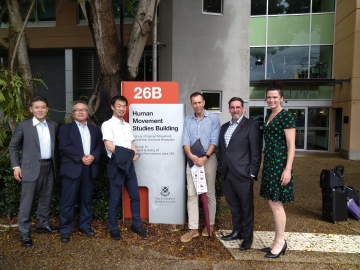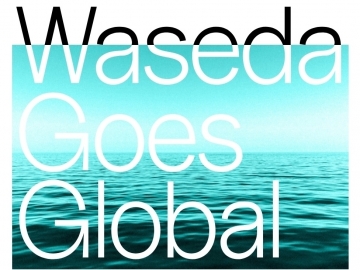The Center for Positive/Empirical Analysis of Political Economy will offer special workshop series on Macroeconomic Modeling and Simulation by Prof. Junior Maih of the Norges Bank and Norwegian Business School. Please find more detail including registration information.
- Presenter: Prof. Junior Maih (Norges Bank, Norwegian Business School)
- Date & Time: January 10 to January 18, 2023, 14:45-16:15
- Venue: Webinar and in person (Waseda Campus, Bldg. 3)
***Please note that the class room will change each day*** -
10 January Waseda Campus, Bldg. 3 3-909 11 January Waseda Campus, Bldg. 3 3-915 12 January Waseda Campus, Bldg. 3 3-305 13 January Waseda Campus, Bldg. 3 3-801 16 January Waseda Campus, Bldg. 3 3-302 17 January Waseda Campus, Bldg. 3 3-301 18 January Waseda Campus, Bldg. 3 3-302 - Required Environment: Matlab (core matlab, optimization toolbox, statistics toolbox)
MikTex, dropbox, oxedit (optional)
(For subscription, please contact upon registration) - Registration: Please contact [email protected]
- Language: English
- Free admission
Outline and Objectives:
This workshop is intended for participants with some considerable background knowledge of both DSGE modeling and RISE. The goal is to perform quantitative analysis within the confines of a theoretically coherent microfounded DSGE model and derive some policy implications. We will use some of the advanced features of RISE to parameterize the model efficiently and carry out various simulation exercises.
Much of the discussion will revolve around the modeling of regime switches and nonlinearities. Those features are ubiquitous in economic data and frequently discussed in policy circles. In a world with sometimes abrupt changes in uncertainty, breakdowns of economic structures, and policy shifts (e.g., unconventional policies), agents must consider the possibility of such events reoccurring.
The workshop is organized over 7 lectures, with each lecture consisting of both lectures and hands-on training. A particular emphasis will be put on research methodology. In other words, we will be conducting research, addressing the issue of” How effective is monetary policy” as if we were writing a research paper. At the end of the workshop, the course participants are expected not just to have an improved command of RISE but also an improved ability to organize and conduct effective research.
Planning of the Workshop (7 sessions x 90 minutes)
Lecture 1 (1/10,) and Lecture 2 (1/11)
The purpose of these lectures is to introduce the problem, discuss its relevance, overview some of the relevant literature on the subject, map out a plan for how we will tackle the problem, and construct a simple model to guide the analysis. At each step of the construction of the model, we will strive to understand the background theory, the purpose, and implications of the assumptions made as well as the intuition behind each simplification. Finally, we will review the basics of the RISE language.
Lecture 3 (1/12) and Lecture 4 (1/13 )
On these days, we will review solution methods, and implement the model accounting for both heteroskedasticity and switches in the deep structural parameters. We will then go ahead and solve the regime-switching DSGE system using perturbation. The solution of the model will give us the opportunity to conduct some basic simulation exercises.
Lecture 5 (1/16) and Lecture 6 (1/17)
In these lectures, we will discuss various techniques for parameterizing1 our model. These include calibration, indirect inference, and likelihood-based estimation. Much of the emphasis will be on the choice of priors and Bayesian estimation, possibly with property priors2.
We will then use the acquired knowledge to calibrate some of the parameters of the model and estimate the remaining ones using Bayesian estimation techniques. After that, we will analyze the economic implications.
Lecture 7 (1/18)
In this lecture, we will focus on robustness analysis. We will, in particular, compute various measures of marginal data density and conduct model comparisons.








